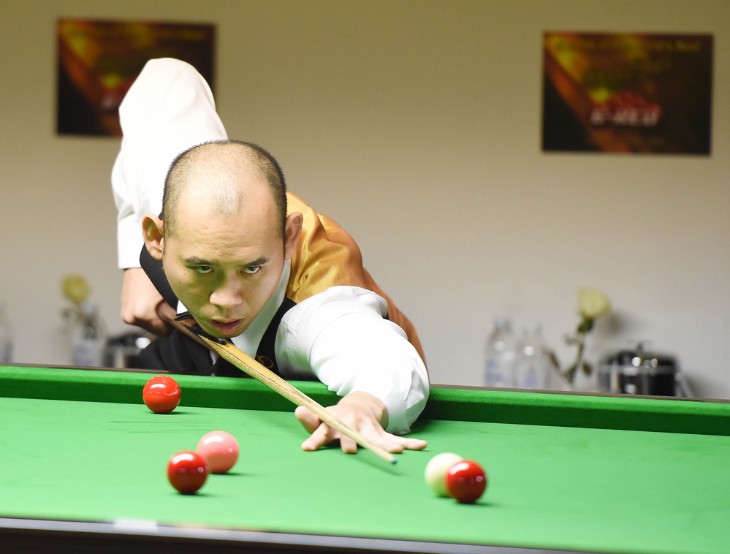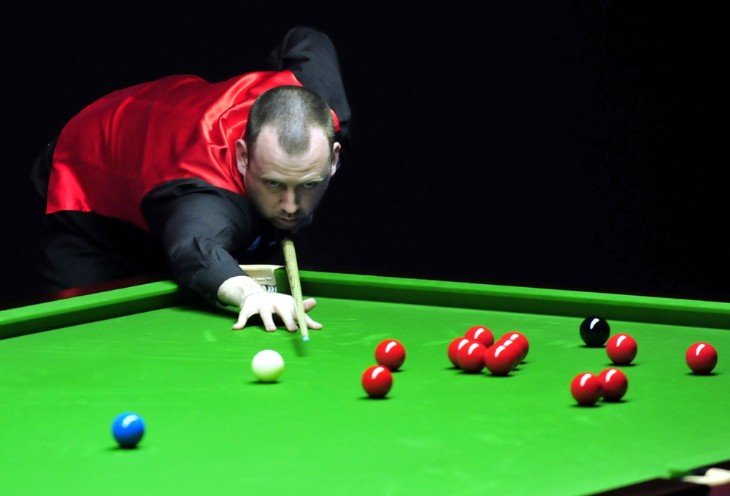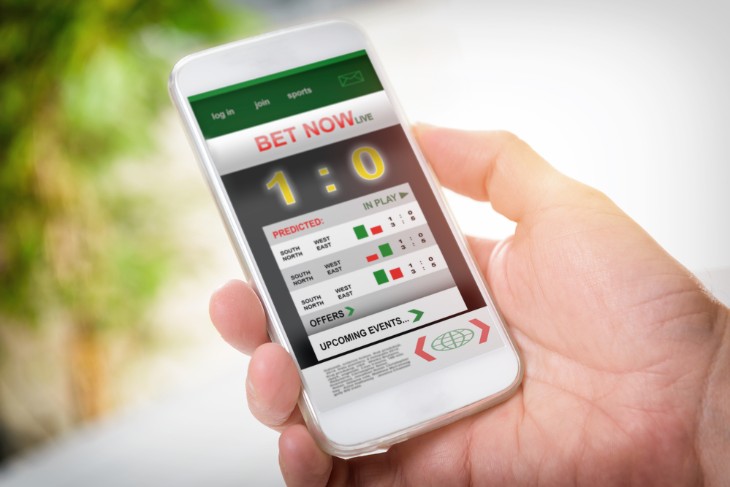Snooker is a cue sport that requires tremendous skill, focus, and mental fortitude from its players. Compared to more mainstream sports, the betting market for snooker is relatively small, providing opportunities for discerning bettors to identify potential value bets. However, successful snooker betting demands an intricate understanding of the game's complex rules, betting markets, and players' current forms.
Snooker is played on a large green baize table with pockets at each corner and along the edges. Players score points by potting object balls in ascending order, starting with reds then colors. Tactical safety shots and intricate skill shots make each frame a battle of wits and talent. Fouls can swing frames and alter matches, introducing additional variables for bettors to consider.
With diverse betting markets spanning match winners, frame scores, centuries, and handicaps, snooker also appeals to more adventurous punters. Nevertheless, avoiding common errors and traps is key to profitable snooker betting. Research, discipline, and the ability to spot value in the odds are vital success factors.
Common Mistakes in Snooker Betting
Backing big names based on reputation rather than current form is a straightforward pitfall in snooker betting. Past glories do not guarantee future triumphs, as veterans can suffer dips in form while rising talents displace established stars. Failing to account for fresh form and recency biases is a recipe for misplaced bets.
Players are also human—injuries, distractions, and lapses in concentration can derail their progress. Understanding specific players' mental strengths and weaknesses provides another edge for discerning bettors. Tactical, safety-first snooker requires tremendous focus. Any wavering of it can reshape matches.
Snooker's scoring system and rules contain further subtleties that casual punters can easily overlook. The odds of clearing a table from afavorable position compared to a tough one varies greatly. Similarly, recognizing situations where fouls may likely occur can steer bets. An intimate knowledge of the game is invaluable.
- The mental toll of playing long, focused frames cannot be underestimated. Betting markets may not fully price in concentration lapses over long matches.
- Distractions like rowdy crowds, table issues, or personal problems can disproportionately impact some players more than others.
- Understanding the relationships between players, their coaches, referees etc. provides extra context for betting decisions.

The Importance of Research
Success in snooker betting requires assessing matches from multiple angles—players' skills, tactics, forms, mentalities, head-to-head records, and recent results. No stone can be left unturned in the quest for credible information to guide betting choices.
Different tournaments also favor certain playing styles and temperaments. The multi-session World Championship tests endurance across days, while swift one-day shootouts reward aggressive scoring. Analyzing how players perform across tournament formats reveals deeper insights into their capabilities and prospects.
Furthermore, table conditions, equipment, and venue familiarity impact outcomes. Understanding and tracking these variables provides another edge to build predictive models guiding profitable bets. The devil lies in the details—those able to discern the pertinent ones stand to profit.
- Tournament schedules and their influence on players' conditions warrant consideration when betting pre-tournament. Late finishes and quick turnarounds can impact performance.
- The characteristics of particular tables, auditoriums and equipment can complement or hinder players in subtle ways.
- Some players thrive on their home crowds during major tournaments. Quantifying and accounting for the "home advantage" effect aids betting.
Bankroll Management in Snooker Betting
Bankroll management ensures snooker betting success over the long run by limiting the bets to amounts proportionate to the total funds set aside. This cautious approach minimizes variance and ensures punters have capital to cover temporary losing streaks.
The most popular technique is the fixed unit stake system, where bettors wager fixed percentages of their bankroll on each bet. This builds on the "Kelly criterion" mathematical formula balancing optimal stakes to maximize long-term profits based on the expected value of bets.
Rigorous tracking of bankroll fluctuations, bets, wins and losses allows bettors to continually refine their strategies. Bankroll management imposes financial discipline, enabling sustained betting without going bust.
- Set clearly defined rules on optimal bet sizing relative to the bankroll, and stick to them without fail.
- Balance bankrolls across bookmakers and take advantage of odds fluctuations between them for arbitrage opportunities.
- Using spreadsheet trackers to monitor every bet's parameters helps quickly identify and address leaks.
Recognizing Value Bets
Identifying bets where the probability implied by the odds underestimates the realistic chances of an outcome is the craft of unearthing value bets. This arises from bookmakers aiming to balance their risk exposure across markets.
Spotting these inefficiencies requires estimating outcome probabilities based on research and stats analysis to compare against odds. Events with higher likelihoods than odds indicate offer positive expected value. Leveraging such discrepancies yields profits.
Quantifying factors like player form fluctuations, tournament suitability, and head-to-head records builds customized predictive models to estimate outcome likelihoods, shining light on potential value. Subjective interpretation of information plays a key role in successful value betting.
- Odds on obscure tournament matches tend to better reflect bookmakers' risk exposure than high-profile events drawing unbalanced action.
- Models underestimating home advantage effects for local player matchups can present value betting opportunities.
- Bookmakers may increase margins on high-uncertainty events like shootouts. This expanded value can be profitably exploited.
Live Betting Strategies in Snooker
In-play or live betting allows punters to place wagers as matches progress in real-time. With more information, this market contains unique value prospects for discerning bettors. Watching early frames offers pointers on players' forms to guide in-play bets.
Particularly in long, multi-session snooker matches, momentum shifts are common as players go through highs and lows. Identifying these swings early and capitalizing through timely live bets before markets adjust is lucrative.
The key lies in rapidly processing signals like unusual misses, bad position play or extended tactical exchanges to estimate their implications on frame outcomes. Integrating these insights with updated form judgements enables profitable live bets.
- Place minimum qualifying bets prior to matches to unlock access to more markets when live betting.
- Keep constant tabs on updated projected totals like match centuries as frames progress to identify value odds.
- Exploit delayed market reactions to early momentum swings by placing informed live bets quicker.
Managing Emotional Factors
Emotional control is critical in snooker betting. Chasing losses by increasing stakes after a bad beat is a natural urge that must be regulated. Similarly, overconfidence after wins can spur reckless bets exceeding sensible risk limits. Controlling fear, greed and hubris determines outcomes.
Strict bankroll management establishes the guard rails, but self-awareness and discipline are key. Taking breaks after tidal wave wins or losses creates space for rational reflections before continuing. Pre-set rules on optimal bet sizing should kick in automatically regardless of results.
By tracking detailed betting records, identifying destructive emotional patterns becomes easier. Spotting and managing the triggers for detrimental behaviors like chasing, temptation to increase stakes dramatically, or a sudden higher risk appetite sets the stage for sustained success.
- Adopting meditation techniques helps bettors strengthen control over emotional ups and downs and centers logical thinking.
- Establish and honor stop loss limits for betting sessions regardless of preceding results to reset mindset periodically.
- Temporarily restricting access to betting accounts after large wins prevents emotional highs from propagating rushed decisions.
Snooker Betting Tips and Strategies
Diversifying across multiple snooker betting markets allows capitalizing on different game facets. Match winner bets offer straightforward returns but carry binary risks. Exploring other options like handicaps, correct scores, total frames or centuries widens alternatives.
Continuous tracking of player form, rankings movements, and results from evolving tournaments provides the information backbone for rational betting, especially identifying mismatches between ability and odds. News monitoring for injuries and withdrawals is also essential.
Moreover, adopting a structured, rules-based approach focused on value betting opportunities determined through research overlooks impulse triggers and maintains financial discipline key for long-term profitability.
- Blend betting models incorporating metrics like pot success percentages and safety shot effectiveness derived from statistics with contextual insights from match analysis.
- Monitor betting exchange platforms in addition to bookmakers to exploit pricing differentials for equivalent markets.
- Establish clear rules for staking as a percentage of bankroll and do not diverge however tempting the prospect.

Snooker Betting Case Studies
Analyzing real-world snooker betting examples offers invaluable practical learnings into strategy nuances. As case studies highlight multiple facets simultaneously over condensed formats, the lessons gleaned tend to crystallize better compared to isolated hypotheses.
Revisiting past upsets through case studies reveals key warning signs often overlooked by casual punters captivated by star player narratives. Similarly, assessing instances where clear favourites justified odds can reinforce criteria for identifying betting value even in lopsided matchups.
Embracing both successes and failures across case studies thus enriches the knowledge base, finesse research processes and model calibration. The patterns gleaned guide future bets.
- Replay close frame decisions and snowball impacts on match outcomes to refine tactical models and psychological factor weightings.
- Analyze final shot differentials between players to quantify marksmanship gaps indicating betting value in handicap markets and perfect scores.
- Assess the impact of alternate break formats on players with contrasting aggressive and tactical styles through relevant showcases.
Conclusion
By avoiding common mistakes like relying solely on reputation, neglecting research, poor bankroll management and chasing losses, snooker bettors greatly improve their chances of success. Discipline and value hunting based on statistical models and holistic analysis trump emotions and impulse betting. Betting diversity, continuous learning and case study reviews further build winning foundations. While snooker betting presents distinct complexities, its profit potential also outpaces alternatives. Reward awaits the patient, eagle-eyed enthusiast.
For more information:











